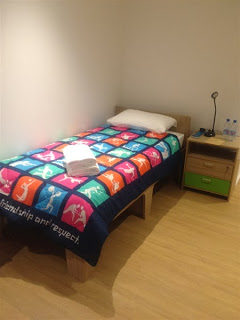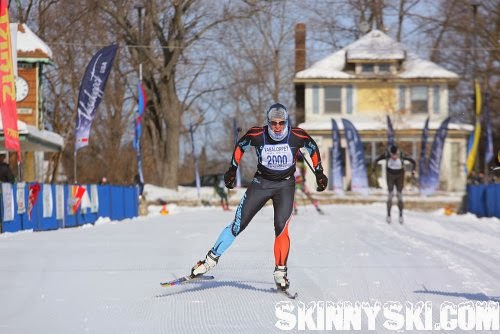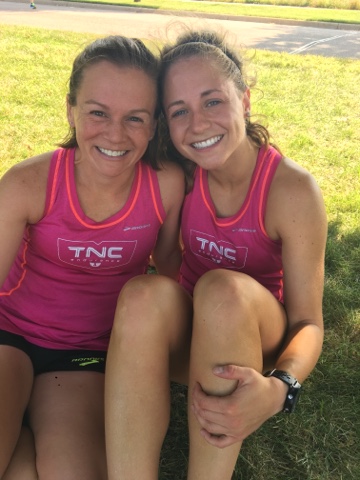Motivation Monday – Sleep!
I know all of you are probably starting to sketch out your training plans, so I’d thought I’d post on one of the “little things” you may want to think about early on in your cycle… SLEEP! It’s probably the one thing that you always point to as something you could improve, but easily put it on the back burner in the middle of a hard training cycle.
Sleep = One BIG “little thing”!
How many hours a night are you getting?
You’ve heard this a million times, but I’ll reiterate it here: if you’re looking to maximize athletic performance, make sleep a priority.
Says who? Nearly everyone. How much? Recommendations vary. One headline from NPR:
Want To Get Faster, Smarter? Sleep 10 Hours
It’s actually a great article (here). College football players slept for 10 hours/night for six weeks and saw their 40-yeard dash time drop from 4.99 seconds on average to 4.89 seconds. They then went on to show how test scores improve when you sleep more. I can become smarter and faster just by sleeping more? Sign me up!!
Other studies show that sleep deprivation can
negatively impact glucose metabolism and cortisol status – two things that are crucial for endurance athletes (along with countless other “crucial” things). Sleep deprivation led to increased levels of
cortisol (stress hormone), decreased activity of human growth hormone
(active during tissue repair), and decreased glycogen synthesis (in fact, decreased to the level of an elderly person… yikes).
Another research study showed just four days of sleep restriction caused:
- 11% reduction in time to exhaustion = impaired endurance ability
- Decreased max bench press
- Impaired cognitive/motor function
- Increased risk of injury (related to
- 1 week of sleep loss = elevated cortisol levels which can interfere with tissue repair and growth
Yet another research study showed that when 11 Stanford male basketball players extended their sleep time by an average of 110 minutes
per night over several weeks, they shot a higher percentage, sprinted
faster, reacted quicker and experienced less drowsiness. Even their
mood improved. (Summary article here)
I could probably go on and on, but I won’t. You’ve heard it before. I’m just here to remind you of it! So – what can you do about it?
Ideas to try to improve sleep:
1. Go to bed at a consistent time! This is especially important if you have varying morning schedules.
2. Blackout curtains! The more cave-like your bedroom is, the better. Think dark, quiet, and cool.
3. Make sure there is a little bit of light so that you don’t trip on something when you’re getting up to use the bathroom. Nothing worse than stubbing a toe or tripping to mess up a training cycle! 🙂 I use something like this:
4. White noise might help. I’ve downloaded a couple of sleep applications for my iPhone which work well (Simply Rain and Sleep Bug). I think there are a lot of options out there and I’m pretty sure they all work about the same.
5. If you’re having trouble falling asleep, get up to read for 15
minutes or write down that to-do list you’re thinking about, and then try going back to bed. Don’t lie there thinking about why
you can’t sleep. It only makes it worse!
6. Alcohol reduces the quality of sleep prohibiting you from getting that deep sleep cycle.It makes you sleepy at first, but then as your alcohol levels fall,
your sleep is more disrupted and fragmented then normal.
7. When eating close to bedtime, make sure your snack is 50/50
protein & carbohydrates (2% cheese & crackers, Banana &
peanut/almond butter, ½ turkey sandwich on whole wheat). Avoid spicy
foods!
8. Avoid smoking and other tobacco products. Nicotine is a stimulant that
disturbs sleep and should be avoided altogether for health reasons.(Hopefully this isn’t an issue, though!)
9. Try to make your bedroom a place only for unwinding and sleeping! This means not using your bedroom
to watch television, read, write, eat, talk on the telephone, use your
laptop or play board games.
How much sleep to target?
Someone once gave me the rule: for every 10 miles you’re training add an extra 10 minutes each night to your typical needs.
So, if you have typically functioned well on 7.5 hours when you aren’t training, up that to 8 hours when you’re running 30 miles/week, 8.5 hours at 60 miles/week, and 9 hours at 90 miles/week, and so on. Not sure where this originated from, but I have found it to be relatively true!
So – in sum, think about sleep when you’re mapping out your training plans! A lot of times, some of these “little things” can make a big difference.





